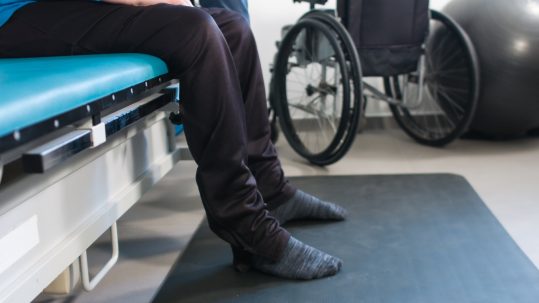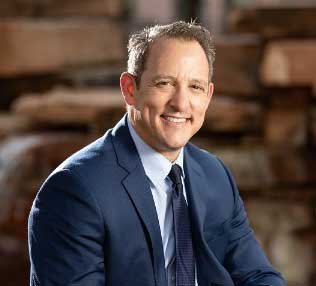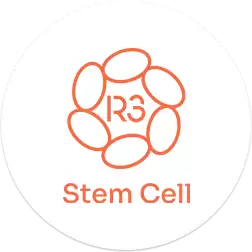Gene and stem cell therapy are at the cutting edge of modern medicine, offering renewed hope to patients dealing with severe medical conditions. Previously considered a stretch of the imagination, stem cell therapy has proven effective in improving the quality of life for several patients, from regenerating damaged organs to reducing symptoms of autoimmune, neurodegenerative, and, particularly, genetic illnesses, such as muscular dystrophy.
WHAT IS MUSCULAR DYSTROPHY
 Muscular dystrophies are a group of genetic conditions that result in weakness and the gradual decline of the heart and skeletal muscles. This condition comes in different forms, with the most common – Duchenne muscular dystrophy – affecting one out of every 3,500 boys globally.
Muscular dystrophies are a group of genetic conditions that result in weakness and the gradual decline of the heart and skeletal muscles. This condition comes in different forms, with the most common – Duchenne muscular dystrophy – affecting one out of every 3,500 boys globally.
Patients diagnosed with this genetic condition usually lack a protein called dystrophin, which makes their muscles easily prone to damage. Following this damage, patients may suffer from inflammation, which subsequently causes further damage to muscle tissues.
The significant indicator of muscular dystrophy is progressive muscle weakness. However, specific symptoms may also manifest themselves depending on the type. Some common symptoms, particularly associated with Duchenne muscular dystrophy, include;
- Frequent falls
- Difficulty running or jumping
- Large calf muscles
- Waddling gait
- Muscle pain and stiffness
- Delayed growth
- Learning disabilities
- Trouble rising from a lying or sitting position
These symptoms tend to be milder and progress slowly, usually starting in a patient’s teen years. It’s also possible for symptoms to remain hidden until patients are in their mid-20s or later.
HOW STEM CELL THERAPY WORKS FOR MUSCULAR DYSTROPHY
Medical practitioners have explored several treatment options for addressing muscular dystrophy. Some current treatments include supportive care and medications. Yet, while these medications are highly regarded across the healthcare sector, they possess significant side effects. Patients have reported weight gain, delay in puberty, behavioral issues, and bone fractures.
Due to the limiting nature of current treatment options, there is a need to explore other methods to curb the progress of the disease, and stem cell therapy has proven to be a promising option, especially in Duchenne muscular dystrophy, which is also regarded as muscle stem-cell disease.
Two overall strategies are involved in addressing this disease with stem cell therapy. First, medical practitioners can engage in autologous stem cell transfer, whereby stem cells from patients are genetically altered to restore the missing protein – dystrophin – and re-implanted into the patient. For the second strategy, patients are implanted with allogeneic stem cells from an individual with functional dystrophin.
Both strategies reverse skeletal muscle damage by regenerating new muscle fibers. Bone marrow cells such as HSCs and mesenchymal stem cells (MSCs) are used for this process. These cells are multipotent and capable of differentiating into other connective tissue types. They also offer anti-inflammatory and anti-apoptotic effects and can produce extracellular matrix molecules.
STEM CELL THERAPY FOR MUSCULAR DYSTROPHY
Stem cells are precious in muscular dystrophy research as they not only act as models for the disease but also remain a direct and effective treatment option for the condition.
Recent tests have shown that stem cells can restore dystrophin function and rejuvenate patients’ cellular environment, thereby limiting the further progression of the disease.
R3 Stem Cell offers safe and effective stem cell therapy to treat muscular dystrophy and other neurodegenerative conditions. Contact (844) GET-STEM today.

About Us
R3 Stem Cell is a global leader in regenerative medicine, offering advanced stem cell and exosome therapies through Centers of Excellence in over 45 locations across 7 countries. Our mission is to provide first-rate, customized… regenerative
Contact Us
Main menu
Subscribe Newsletter
Contact Detail
The links below provide national city resource information about stem cell therapy. To find a clinic near you click here
CALIFORNIA
- San Diego
- San Jose
- Fresno
- Anaheim
- Bakersfield
- Beverly Hills
- Chula Vista
- Corona
- Del Mar
- Elk Grove
- Escondido
- Fremont
- Fontana
- Fullerton
- Hayward
- Huntington Beach
- Garden Grove
- Irvine
- Sacramento
- Lancaster
- Long Beach
- Los Angeles
- Los Angeles RM
- Modesto
- Moreno Valley
- Oakland
- Oceanside
- Ontario
- Orange
- Oxnard
- Palmdale
- Pomona
- Rancho Cucamonga
- Rancho Santa Margarita
- Riverside
- Roseville
- Salinas
- San Bernardino
- Santa Ana
- Santa Barbara
- Santa Clarita
- Santa Rosa
- Stockton
- Sunnyvale
- Torrance
- Turlock
FLORIDA
- Jacksonville
- Gainesville
- Cape Coral
- Fort Lauderdale
- Hialeah
- Hollywood
- Miami
- Miramar
- Orlando
- Pembroke Pines
- Port St. Lucie
- St. Petersburg
- Tallahassee
- Tampa
GEORGIA
HAWAII
IDAHO
ILLINOIS
INDIANA
IOWA
KANSAS
KENTUCKY
LOUISIANA
MARYLAND
MASSACHUSETTS
MICHIGAN
MINNESOTA
MISSISSIPPI
MISSOURI
NEBRASKA
NEW JERSEY
NEW YORK
NEW MEXICO
NEVADA
NORTH CAROLINA
OHIO
OKLAHOMA
OREGON
PENNSYLVANIA
RHODE ISLAND
SOUTH CAROLINA
SOUTH DAKOTA
TENNESSEE
Disclaimer
Stem cell therapy is considered experimental and is regulated by the U.S. Food and Drug Administration (FDA), but it is not FDA-approved. R3 Stem Cell does not offer stem cell therapy as a cure for any medical condition. No statements made on this site have been evaluated or approved by the FDA. This site does not provide medical advice. All content is for informational purposes only and is not a substitute for professional medical consultation, diagnosis, or treatment. Reliance on any information provided by R3 Stem Cell, its employees, others appearing on this website at the invitation of R3 Stem Cell, or other visitors to the website is solely at your own risk. R3 Stem Cell does not recommend or endorse any specific tests, products, procedures, opinions, or other information that may be mentioned on this website. R3 Stem Cell is not responsible for the outcome of your procedure. The FDA considers stem cell therapy experimental at this point.
Copyright © 2017-2026 R3 Stem Cell. All Rights Reserved.

Dr. David Greene
MD, PhD, MBA
Dr. David Greene, MD, PhD, MBA, is a pioneering leader in regenerative medicine and healthcare marketing. As a residency and fellowship-trained orthopedic surgeon, Dr. Greene transitioned from clinical practice to become the founder and CEO of R3 Stem Cell and US Lead Network, where he has revolutionized patient care and medical practice growth through innovative therapies and digital marketing strategies. He has authored two influential books on healthcare internet marketing, ranks among the top expert authors globally, and has been featured on the cover of Corporate Vision magazine for his impact on global regenerative therapies. Beyond his professional achievements, Dr. Greene is passionate about education, compassion, and continuous innovation.

Sorry, the comment form is closed at this time.